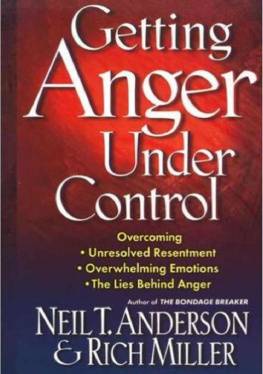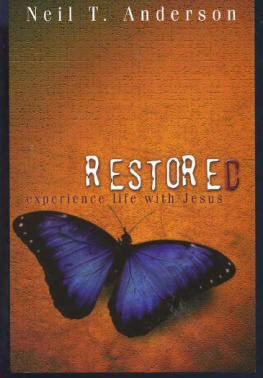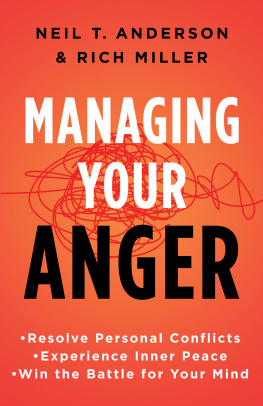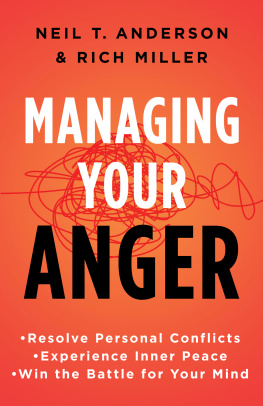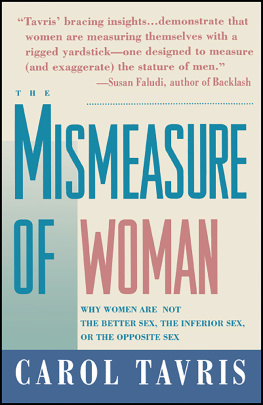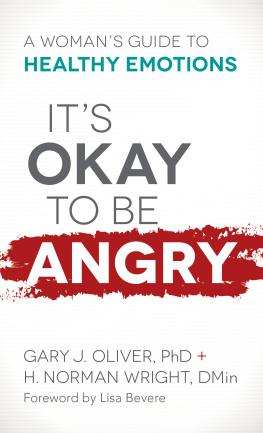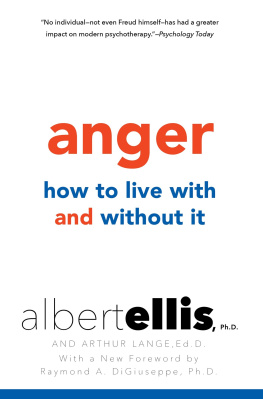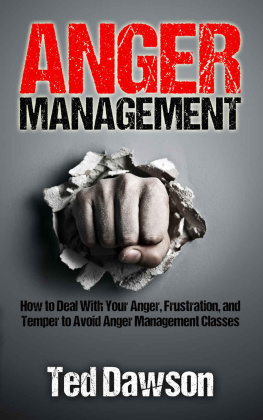A WORD OF DEDICATION
The terrorist attack of September 11, 2001, on the World Trade Center and the Pentagon, occurred as we were doing the final editing of this book. The shock of this terrible tragedy was felt deeply by us as well as by people all around the world. Americans responded in disbelief and wondered how this could happen to us, a peace-loving nation. But what was intended to dishearten and destroy us took a different turn. It brought out a heroic spirit of brotherhood and revealed that the church is still the soul of America.
These deplorable acts of violence brought about a righteous indignation that caused our country to unite against godless terrorism. This act of war is evidence of the continuing battle between good and evil being fought on this planet. The battle is not between Christians and Muslims, nor is it between America and the Arab world. Sadly, however, some of our anger over this is not righteous and has brought out the worst of our bigotry and hatred.
We do not know at this writing what action our country is going to take to seek justice, but we pray that we will seek justice, not revenge. We also pray that our response will be made not out of pride, but out of humility. This is a time to humble ourselves, turn from our self- centered ways, and pray. We could be on the verge of a worldwide conflict, or we could be witnessing the beginning of a worldwide revival.
Maybe both. But if a revival is coming, "Lord, let it begin with us!
This book is dedicated to the policemen and firemen who gave their lives that others could live. It is dedicated to the innocent victims on the commercial airplanes used as weapons of war. It is dedicated to the memory of the mothers and fathers, brothers and sisters who lost their lives that tragic morning in New York, Pennsylvania, and Washington, D.C. Finally, it is dedicated to all those serving in the armed forces who face the prospect of dying for their country, for the cause of justice and freedom.
Freedom has always come with a price; it cost the life of Jesus in order that we might be alive and free in Him.
We know love by this, that He laid down His life for us; and we ought to lay down our lives for the brethren.
1 John 3:16
Neil and Rich September 2001
CONTENTS
Part I: How Anger Works in You
Part II: How Grace and Forgiveness Work in You
Part III: How Gods Power Works in You
Note From The Authors
In relating true stories and testimonies throughout the book, we have changed names to protect individual identity and privacy.
For ease of reading we have usually not distinguished ourselves from each other in authorship or experiences, preferring to use "I and "we as opposed to "I (Rich) or "I (Neil). The exceptions are illustrations referring to family.
AN ANGER EPIDEMIC
The world has a serious and growing problem with anger, and America is no exception. A recent U.S. News poll revealed that "a vast majority of Americans feel their country has reached an ill-mannered watershed. Nine out of 10 Americans think incivility is a serious problem, and nearly half think it is extremely serious. Seventy-eight percent say the problem has worsened in the last 10 years.1
In the U.S. workplace, more than 2 million people each year are victims of crime, with 75 percent of those cases being simple assaults. Workers aged 35 to 49 are the most common targets, with 37 percent of them per year becoming victims of workplace violence. From 1994 to 1996, businesses ranked violence in the workplace as their number one concern.2
Why Are We So Angry?
Why have our offices and places of business become hotbeds for anger? Leslie Charles, in her book Why Is Everyone So Cranky? writes , "People say work isnt fun like it used to be. They dont have time. They are always behind the eight ball. They are always put on the spot. Theyre asked to move in one direction, then told to completely switch and move in another direction.3
A recent newspaper article painted this picture of a whitecollar worker:
Youre stuck in traffic, making you late to work for the third time in a week. Walking in the door, you pass by a co-worker you cannot stand, who offers you a fake smile and a "youre late comment. You keep walking, but the anger that is simmering below the surface begins to move to the top. Upon reaching your desk, you notice a stack of work waiting that your boss wants done "ASAP. You think about having a cup of coffee, then notice someone took the last drop and didnt bother refilling the pot. About now, it feels like the top of your head may come off. You are truly cranky, and its not even 9 A.M.4
A recent Gallup poll found that 49 percent of those surveyed generally experience anger at work, with one out of six becoming so angry that he or she felt like hitting another person.5 Adding to this, an Internet survey conducted by Access Atlanta discovered that 67 percent of those responding had become so angry at work that they had thought about slapping a coworker .
Escaping a hostile work environment by retreating to the peace and safety of our homes doesnt appear to be an answer. Experts in the field of domestic violence believe that the true incidence of "partner violence is around 4 million occurrences annually. Thirty percent of American women report that their husband or boyfriend has, at one time or another, physically abused them.6 In fact, of the $450 billion cost of crime each year, about one-third is accounted for by domestic violence and child abuse. In 1995, for instance, nearly 1 million cases of child abuse were confirmed by child and protective services.7 And that doesnt include the millions of incidents of angry outbursts, hateful words, and vicious looks, as well as the countless unreported cases of neglect and abuse.
If the character of a nation can be measured by its treatment of the young, the infirm, and the elderly, then America would not be judged well. Reported cases of elder abuse rose 106 percent from 1986 to 1994, according to the National Center of Elder Abuse. Total incidents range from 1 to 2 million cases annually, though perhaps only 1 in 14 cases is actually reported to any public agency.8 Whether they are manifested in overt violence and abuse or covert hostility and neglect, its clear that anger, impatience, frustration, disrespect, and incivility have become a part of the American personality. Whether it is road rage, airplane rage, grocery-store rage, or rage at sporting events, rage is suddenly "the rage. And too many of us feel our anger is justified. In a recent USA Today article, an elementary school teacher probably spoke for many people when she said,
If you have been sitting in traffic on freeways that have been clogged year after year, rage might seem rational. There are, what, more than 260 million of us now? Our roads were not built to accommodate that. The grocery-store parking lots are filled. It is hard to get into the bank. The airport tells you to come 90 minutes before your flight. Parking is at a premium. Overcrowding has become part of society at large and that contributes to a sense that "anything goes.9
Does it? Do we have a right to be angry?
Do We Have Good Reason to Be Angry?
Almost every day a new twist on anger hits the newsstands. A Florida high-school baseball coach breaks an umpires jaw over a disputed call. Two shoppers exchange blows over who deserves the first spot in a checkout lane that just opened. In California, an angry driver yanks a pet dog out of the vehicle that bumped his car and throws the animal into the oncoming traffic. The dog dies, and the man is sentenced to three years in jail. A Reading, Massachusetts, youth hockey coach is beaten unconscious by an irate parent. The coach, Michael Costin , dies two days later. The parent pleads "not guilty to manslaughter charges. A 15-year-old boy gets fed up with being put down by his classmates and opens fire on them in his suburban San Diego high school. Two are dead, 13 wounded.

